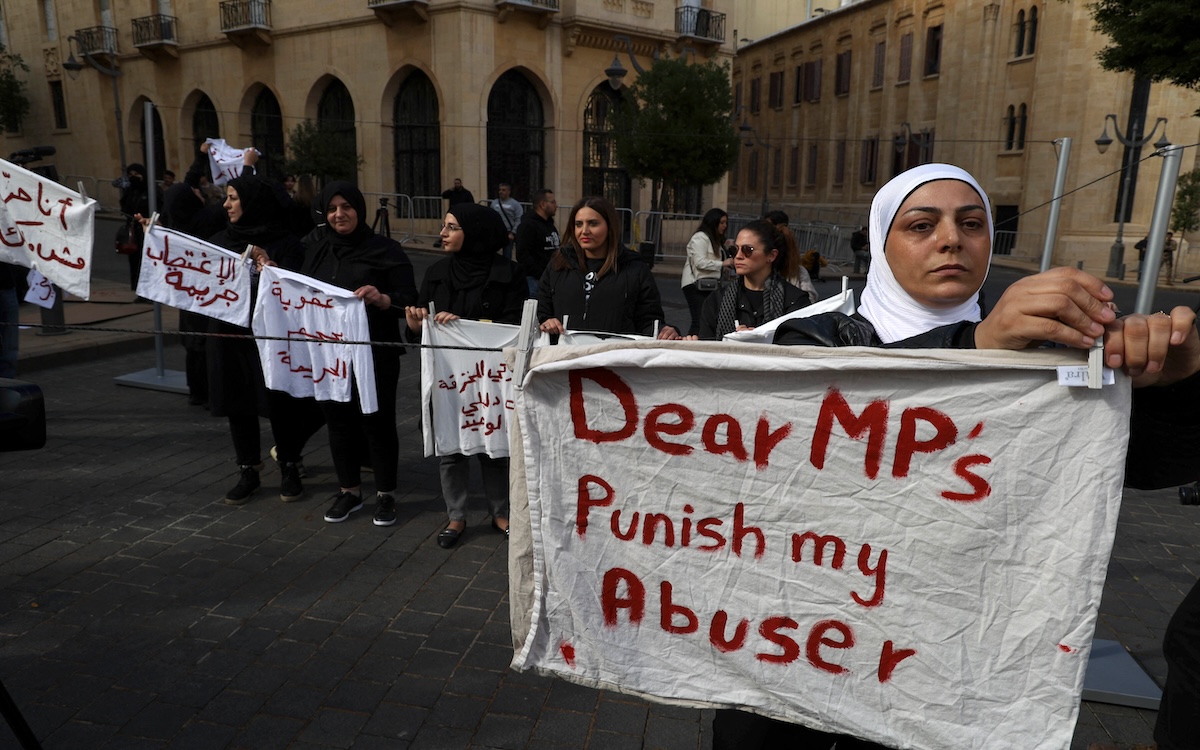ABAAD (non-profit organization and resource center for gender equality) has reported that in 2023 alone, 29 women were killed in Lebanon – a 300 percent increase from 2022 according. This translates to around two femicides per month based on information from the General Secretariat of Internal Security Forces.
In a statement published across a number of news platforms and social media outlets, ABAAD also highlighted that the number of women and girls that have fallen victim to sexual violence reached 172 in 2023, averaging 14 victims per month.
The organization’s statement notes that Internal Security Forces received 767 complaints on the hotline dedicated to combating domestic violence. On another hand, 407 women and girls were subject to electronic blackmail.
Disproportionate Impacts from the Crisis
Women and girls in Lebanon have suffered disproportionately from the series of crises that the country has gone through.
The onset of the COVID-19 pandemic was one such occasion that highlighted defects in Lebanon’s social structures. Indeed, the rate of domestic violence during the pandemic rose dramatically.
According to the Internal Security Forces, the rate of communications from women who have been subjected to violence rose by 100 percent during the lockdown period.
The rate of domestic violence complaints, on its part, also increased dramatically before and after the first lockdown in 2019-2020, rising by 124.16 percent.
Economically and in terms of access to services, women have also been disproportionately impacted by the ruling class and government’s political economy decisions.
One prominent example stands out when the Lebanese government decided to subsidize men’s health products, like shaving creams and razor blades, alongside other non-essential products like snacking nuts, while women’s health products, such as menstrual pads, were not subsidized.
Many link such realities to deeply-rooted political and representational issues, as the Lebanese Parliament only hosts eight women out of its 128 membership.
As such, challenging the dominant political culture and having women’s voices in leadership positions are considered pivotal steps towards addressing the daily violences that women are subjected to.
Raising Awareness and Lobbying
ABAAD, alongside other organizations such as KAFA (Enough Violence and Exploitation), have been shedding light on the realities of domestic violence, sexual violence, and inequality in Lebanon.
In addition to producing reports, statements and overall informational content, the organizations conduct several on-the-ground efforts to raise awareness among the general populace on crucial issues, lead campaigns with alternative political groups, pressure authorities to change their ways of operation and issue recommendations.


